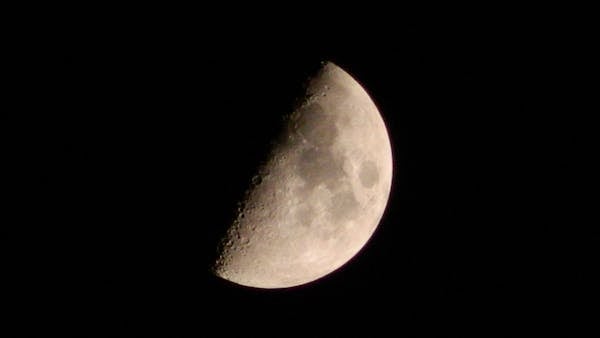
Solar eclipses are among the most awe-inspiring natural events, captivating observers with their mysterious beauty and astronomical significance. As the Moon passes between the Earth and the Sun, it creates a spectacle that has fascinated humanity for centuries. If you’re wondering “When is Next Solar Eclipse in 2024, 2025 and 2026?”, this guide will provide all the details you need to mark your calendar and prepare for these remarkable occurrences.
The 2024 Solar Eclipse: A Total Eclipse to Remember
The first solar eclipse to grace the skies in 2024 will be a total solar eclipse on April 8. This event will be particularly significant for observers in North America, as the path of totality will stretch across a large portion of the continent. From Mexico to Canada, millions of people will have the chance to witness the Sun being completely obscured by the Moon, casting a shadow and turning day into night for a few precious minutes.
For those asking, “When is Next Solar Eclipse in 2024, 2025 and 2026?”, the 2024 total solar eclipse is a must-see event, especially if you are located in the path of totality. The eclipse will begin over the Pacific Ocean, making landfall in Mexico before crossing into the United States, passing through Texas, Arkansas, Missouri, Illinois, Indiana, Ohio, New York, Vermont, and Maine. It will then continue into Canada, ending its journey over the Atlantic Ocean.
This eclipse is expected to last around four minutes in some locations, offering a rare and breathtaking view of the Sun’s corona. For those outside the path of totality, a partial eclipse will still be visible across much of North America.
The 2025 Solar Eclipse: An Annular Ring of Fire
Following the dramatic total eclipse of 2024, the next solar eclipse to look forward to occurs on October 2, 2025. This will be an annular solar eclipse, also known as a “ring of fire” eclipse. During an annular eclipse, the Moon is too far from Earth to completely cover the Sun, resulting in a bright ring of sunlight encircling the Moon’s silhouette.
The path of annularity for the 2025 solar eclipse will cross the southern hemisphere, with the best views in parts of the South Pacific, including parts of Chile and Argentina. The eclipse will also be visible as a partial eclipse in much of South America, southern Africa, and Antarctica.
For those keeping track of “When is Next Solar Eclipse in 2024, 2025 and 2026?”, this event will be less dramatic than the total eclipse of 2024, but it still offers a stunning celestial display that shouldn’t be missed, especially for those in the path of annularity.
The 2026 Solar Eclipse: A Rare Hybrid Event
The next solar eclipse in the series will occur on February 17, 2026, and it will be a rare hybrid solar eclipse. A hybrid eclipse is a unique event where some parts of the eclipse path will see a total eclipse, while others will witness an annular eclipse. This phenomenon occurs because of the curvature of the Earth, making the eclipse a hybrid between the two types.
The path of this hybrid eclipse will be primarily over the Atlantic Ocean and parts of the Arctic, with the greatest visibility in the northern reaches of Greenland, Iceland, and northern Russia. For those asking, “When is Next Solar Eclipse in 2024, 2025 and 2026?”, this event will be of particular interest to eclipse chasers and those located in these remote regions.
The 2026 hybrid eclipse will provide a fascinating display, with the transition from annular to total eclipse and back again offering a unique experience for those lucky enough to be in the right place at the right time.
Why Solar Eclipses Captivate the World
Solar eclipses have long been a source of wonder and mystery, inspiring myths, scientific inquiry, and a deep sense of connection to the cosmos. Whether you’re a seasoned astronomer or simply someone who appreciates the beauty of the natural world, witnessing a solar eclipse is an unforgettable experience.
The question “When is Next Solar Eclipse in 2024, 2025 and 2026?” is more than just a query about dates; it’s a reflection of our ongoing fascination with these celestial events. Eclipses remind us of the intricate dance between the Earth, Moon, and Sun, and they offer a rare opportunity to witness this cosmic ballet firsthand.
Preparing for the Solar Eclipses
If you’re planning to observe the upcoming solar eclipses, there are a few things to keep in mind. First and foremost, safety is crucial. Never look directly at the Sun without proper eye protection, as it can cause serious eye damage. Eclipse glasses or solar viewers that meet international safety standards are essential for safely viewing the eclipse.
For those planning to travel to the path of totality or annularity, it’s wise to book accommodations and travel arrangements well in advance, as these events often attract large crowds. Many eclipse enthusiasts travel great distances to be in the best viewing locations, so early planning is key.
The Global Perspective: Eclipses Beyond 2026
While the focus here is on the question “When is Next Solar Eclipse in 2024, 2025 and 2026?”, it’s worth noting that solar eclipses are part of a larger cycle that spans centuries. After 2026, there will be more eclipses to look forward to, including both total and annular events.
For those interested in pursuing a lifelong passion for eclipse watching, understanding the Saros cycle—a period of approximately 18 years, 11 days, and 8 hours after which eclipses repeat—can provide valuable insights into future eclipse dates and paths. This knowledge allows eclipse chasers to plan their adventures years, or even decades, in advance.
The Cultural Significance of Solar Eclipses
Throughout history, solar eclipses have held significant cultural and spiritual meaning. In many ancient cultures, eclipses were seen as omens or messages from the gods. They were often feared and revered, with elaborate rituals and ceremonies performed to appease the celestial forces at play.
In modern times, while we understand the science behind eclipses, they still hold a powerful allure. The experience of standing in the shadow of the Moon, watching as the day turns to night, is a humbling reminder of our place in the universe. For many, witnessing an eclipse is a deeply spiritual experience, a moment of connection with something greater than ourselves.
Educational Opportunities
Solar eclipses also offer valuable educational opportunities, particularly for students and educators. Schools and universities often organize special events and viewing sessions, providing a hands-on learning experience about astronomy, physics, and the natural world.
For those wondering “When is Next Solar Eclipse in 2024, 2025 and 2026?”, these events are an excellent opportunity to engage with the subject matter in a real-world context. From understanding the mechanics of eclipses to exploring their impact on history and culture, there’s a wealth of knowledge to be gained from studying these celestial phenomena.
Conclusion: Mark Your Calendar
The upcoming solar eclipses in 2024, 2025, and 2026 offer a rare chance to witness one of nature’s most stunning displays. Whether you’re planning to travel to the path of totality, observe from your backyard, or follow the event online, these eclipses promise to be unforgettable.
For those asking “When is Next Solar Eclipse in 2024, 2025 and 2026?”, the answer is that each of these years offers a unique opportunity to experience the wonder of a solar eclipse. From the total eclipse in 2024 to the annular eclipse in 2025 and the hybrid eclipse in 2026, there’s something for everyone to enjoy.
So, mark your calendar, gather your eclipse glasses, and get ready to be amazed by the celestial dance of the 2024 Solar Eclipse, 2025 Solar Eclipse, and 2026 Solar Eclipse. These events are more than just dates on a calendar—they’re moments of wonder, connection, and discovery that will leave a lasting impression on all who witness them.





More Stories
12 Benefits of Using Yext for Your SEO Strategy
How a Revops Agency Can Eliminate Chaos and Create Revenue Clarity
Why Exhibit Fabrication Is the Key to Memorable Brand Experiences